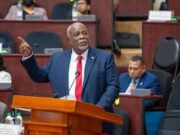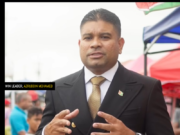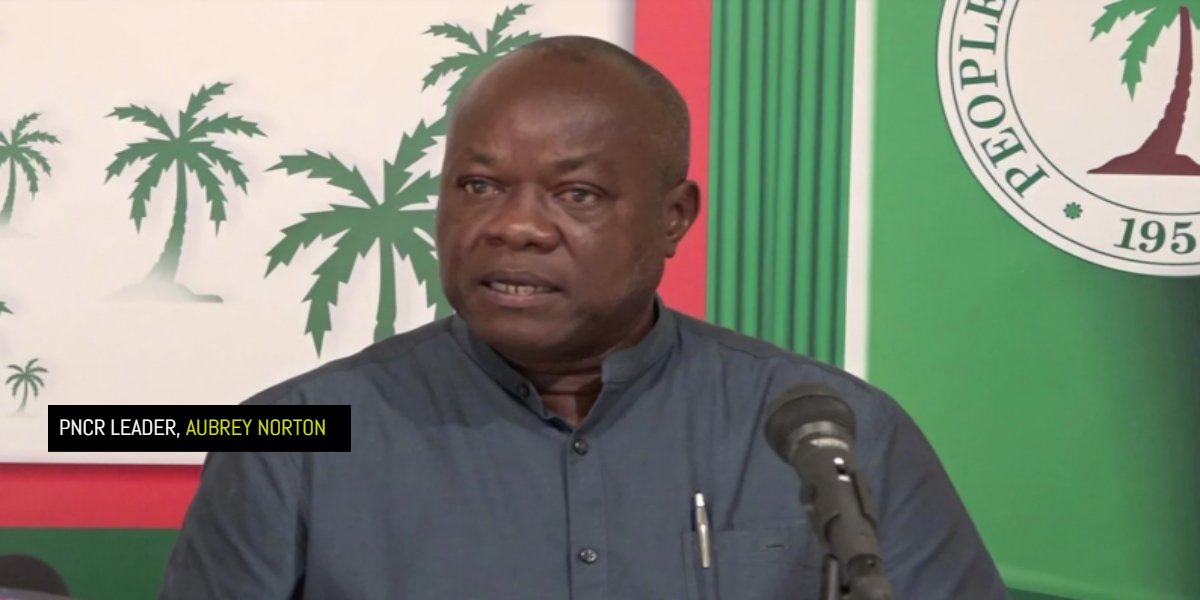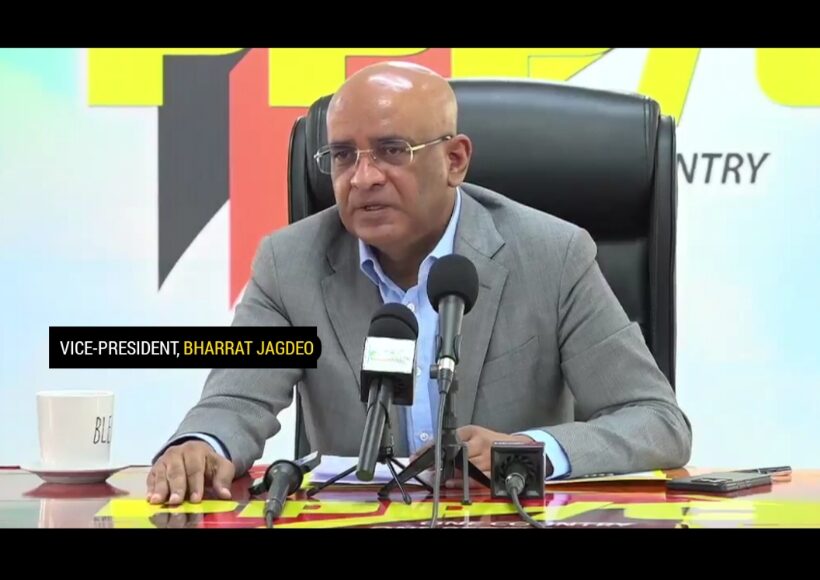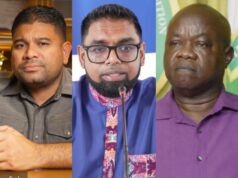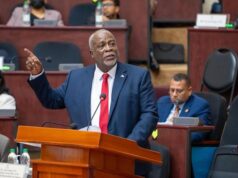Vice President Dr. Bharrat Jagdeo has emphasized the need for an updated copyright platform in Guyana, following a recent lawsuit filed by local artists against One Communications over the unauthorized use of their song.
During his most recent press conference, Jagdeo highlighted that it is time for the country to strengthen its copyright protection framework to support local artists and meet international standards.
Jagdeo stated, “I believe our artists should be protected. We are part of the WTO (World Trade Organization), and some countries expect us to implement a new dispensation. They’re not going to bring certain types of business here unless we have protection for them.”
He underscored the necessity of evolving the country’s copyright laws to reflect the changing landscape of the entertainment industry and the growing demand for legal protection of creative works.
The call for reform comes in the wake of a US$1.6 million lawsuit filed by singer Jackie Hanover, also known as Jackie Jaxx, and calypsonian Ivan “D’iVan” Harry against One Communications. The lawsuit, filed in the Eastern New York District Court, alleges that the company, along with local singer Nikeita, infringed on the copyrights of the artists by performing and broadcasting their song “Guyana” without authorization during One Communications’ brand launch earlier this month.
In response to the lawsuit, One Communications acknowledged the claim and stated that it is conducting a thorough investigation into the matter. While refraining from commenting on legal proceedings, the company emphasized its commitment to supporting Guyanese artists and the creative industry.
Reflecting on his past stance on copyright issues, Jagdeo noted the changes in the digital age and the need for modernized legislation. “Historically, I might have had another view,” he said. “At that time, the developed world was not protecting a lot of our stuff. They didn’t take our teachers and our nurses that we spend tons of money on—who’s going to pay us back for the training? We don’t get a cent back for training. So, my views have evolved.”
Jagdeo pointed out that with the rise of online streaming platforms and modern theatres, Guyanese now have more avenues to legally access content, reducing the need for pirated materials. He added, “People’s income levels have grown, and they get their content from more sources that they can actually pay for, like online streaming and stuff like that.”
The Vice President also urged for a balanced approach to copyright enforcement, considering both local and international content. “I support the protection of local copyright strongly,” he said. “We need to evolve the framework to protect them more. It’s not just the locals now, which I support strongly; we need to protect even foreign content.”
Jagdeo’s comments suggest that the government is prepared to revisit and potentially reform the country’s copyright laws, which could pave the way for a stronger creative industry in Guyana. “I think it’s time that we start strengthening our platform because the economy is becoming more modern, and we need new types of businesses that would demand copyright protection,” he said.


